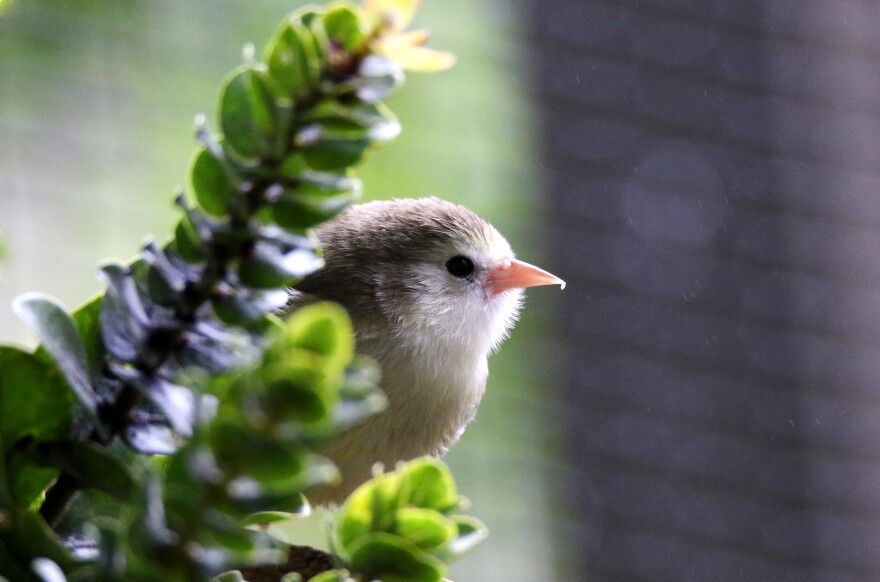There are only five native Hawaiian honeycreepers, known as ‘akikiki, left in the wild – and chances of saving them are slim.
The biggest threat to the critically endangered bird is mosquito-borne diseases. Now, the Board of Land and Natural Resources is considering using bacteria to control mosquito populations.
The ʻakikiki is a cute little gray bird with a white belly, a pink beak and little pink feet.
"But the most adorable thing about the ʻakikiki is its behaviors because it loves to scamper up and down the trunks and the branches of trees looking for insects like caterpillar and spider grubs that are hiding underneath the bark and underneath the lichen. And so it swings upside down and it flips around and it's always peeking at you sort of wrong side up," said Lisa "Cali" Crampton with the Kauaʻi Forest Bird Recovery Project.
The latest population estimates from July 2023 found five ʻakikiki in the wild.
Crampton said climate change has allowed mosquitoes to move to higher elevations on the island.
"It's making temperatures warmer so that mosquitoes can live in the Alakaʻi year-round. And the pathogen, the disease that they carry that they spread to the birds, can also live year-round. And so this disease has caused the honeycreeper populations to crash, to plummet on Kauaʻi," she said.

To prevent the extinction of the ‘akikiki, bird advocates like Crampton are proposing to control mosquito populations with a bacteria called Wolbachia.
"So when male mosquitoes and female mosquitoes have different strains of this bacteria, Wolbachia, which occurs in mosquitoes in Hawaiʻi naturally — so we're not introducing anything that's not part of the system — it turns out that when the male has a different strain than the female, his sperm are unable to fertilize her eggs," Crampton said.
That makes the eggs inviable and unable to turn into mosquitoes.
The Board of Land and Natural Resources met Friday to consider the landscape-level use of the Wolbachia in critical forest bird habitats on Kauaʻi.





